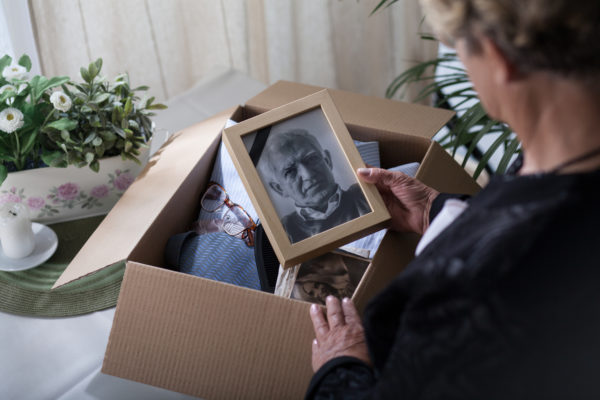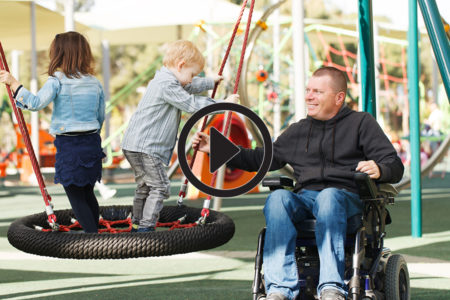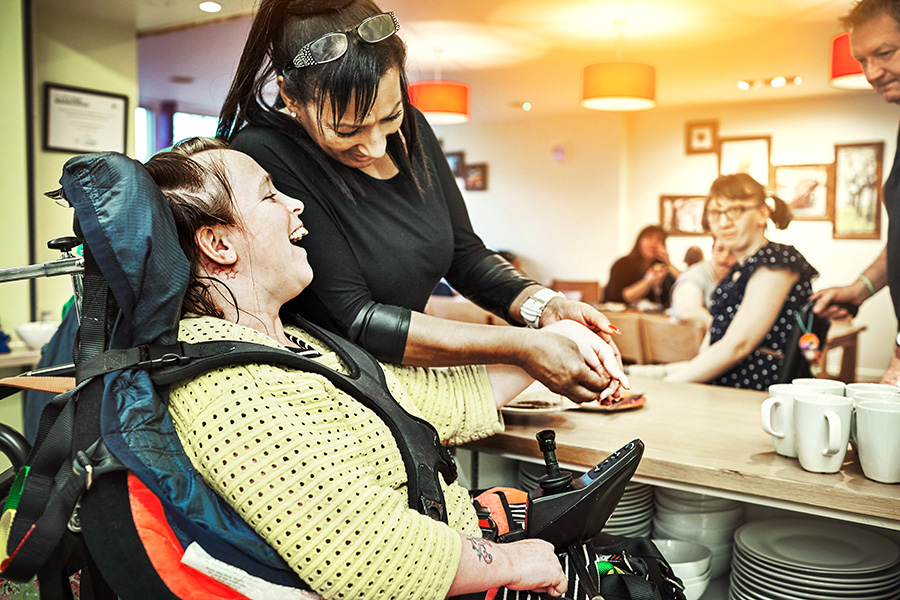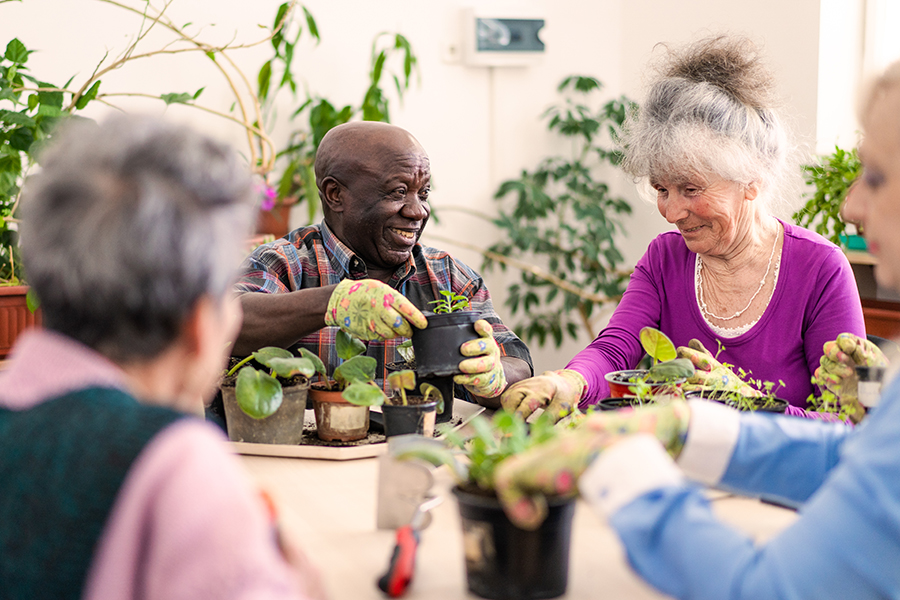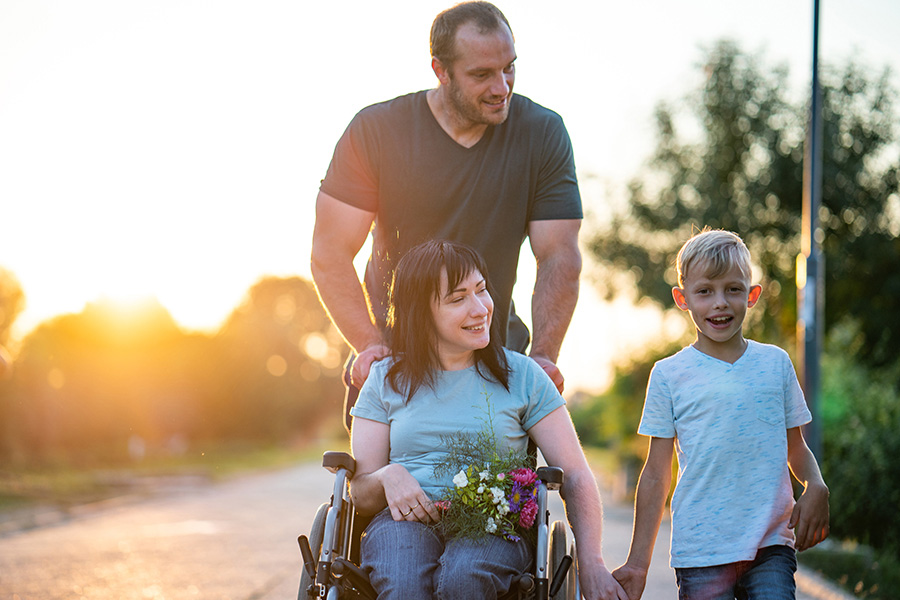When a spouse dies, it may feel as if your world turns upside down. So many complex thoughts and feelings run through your head. But keep in mind that all feelings are normal…anger, grief, and even guilt. There is no correct way to mourn the loss of a partner. Combating depression after the death of a spouse is difficult, but there are many ways to fight against it.
Common Reactions
During the grieving process, many individuals experience both physical and emotional turmoil. Some common reactions include:
- Anger toward the spouse who died
- Difficulty sleeping
- Little interest in food/changes in appetite
- Problems concentrating
- Difficulty making decisions
- Feelings of numbness, shock, or fear
- Feeling guilt about being alive
Moving Forward
Grief doesn’t have a timeline, but putting your life back together is key to the healing process. Some ideas for moving forward may include:
- Engaging in grief counseling or therapy
- Leaning on family, friends, or faith
- Eating healthy
- Talking with friends
- Joining a grief support group.
- Seeing your doctor regularly and/or seeking professional help
- Taking your time healing; there is no set timeline for when you “should” be done grieving
There will always be good and bad days. Don’t feel guilty if you find yourself enjoying time with a friend or laughing at a funny joke. It is okay to be happy. It is okay to be sad. It is okay to feel both emotions simultaneously!
Some people mourn for so long that they face chronic depression and anxiety. If you find yourself facing these problems, talk with your doctor or therapist. Support is always available to you, should you need it.
Participate in Activities
Being alone for the first time in a long time is shocking and can be scary. Stay in touch with friends and family. Try participating in daily activities to keep you occupied, such as:
- Take a walk or exercise in another way
- Visit the library
- Volunteer in your community
- Join a singing group
- Join a bowling league
- Offer to watch your grandkids
- Consider adopting a pet
- Take classes at a recreation center or senior center
Don’t try to block or numb pain through sleep, alcohol, tobacco, or drugs. You are the only one in control of your grieving process and your feelings. Don’t let well-meaning friends and family manipulate you into participating in things you don’t want to do. Listen to your own instincts and do what you need to do to heal.
Some tips for caregivers who are helping a senior combat depression after the death of a spouse:
Encourage him/her to…
- Not make any major life changes right away (ex. moving, switching jobs)
- Eat healthfully, exercise regularly, get enough sleep
- Take medications as ordered by their doctor
- Talk with friends
- Think about finding a part-time job
You may have heard about the “5 stages of grief,” popularized by psychiatrist Elizabeth Kubler-Ross. These stages are:
- Shock/Denial
- Anger
- Bargaining
- Depression
- Acceptance
However, studies now show that we do not progress through these stages in a lock-step fashion. As we grieve, may find that we fit the stages she Kubler-Ross outlined – or we may skip all but one. We may race through them quickly or crawl through them slowly. We may repeat stages, or add stages that Kubler-Ross never dreamed of. Instead of a neat set of 5 stages, the actual grief process looks a lot more like a roller coaster of emotions. Even Kubler-Ross said that grief doesn’t proceed in a linear and predictable fashion, writing toward the end of her career that she regretted her stages had been misunderstood.*
Every person grieves in their own way, and there is no wrong way to grieve. Be kind, compassionate and gentle.
Ways You Can Help
- Be available. Try to offer support in persistent, but unobtrusive ways.
- Listen to them talk, but don’t feel like you need to always give advice. Sometimes simply a listening ear can make a huge difference.
- Don’t offer stories of your own experiences with grief unless prompted. This can make the grieving person feel like their pain is being dismissed.
- Realize and understand that there is no way to replace, fix, or undo the loss. Allow the person to feel his/her pain.
- Be patient and understand without being patronizing; avoid saying things like you “know” how the grieving person feels.
- Don’t force the person to share their feelings with you or others.
- Physical/emotional connection can be very beneficial. Considering giving the person a hug or handclasp if appropriate.
- Realize that certain dates may hold significance to the person and offer your support.
- Share stories/memories of the deceased person.
- Send cards, flowers, food, offer to do daily tasks etc.
Additional information:
Sources:





